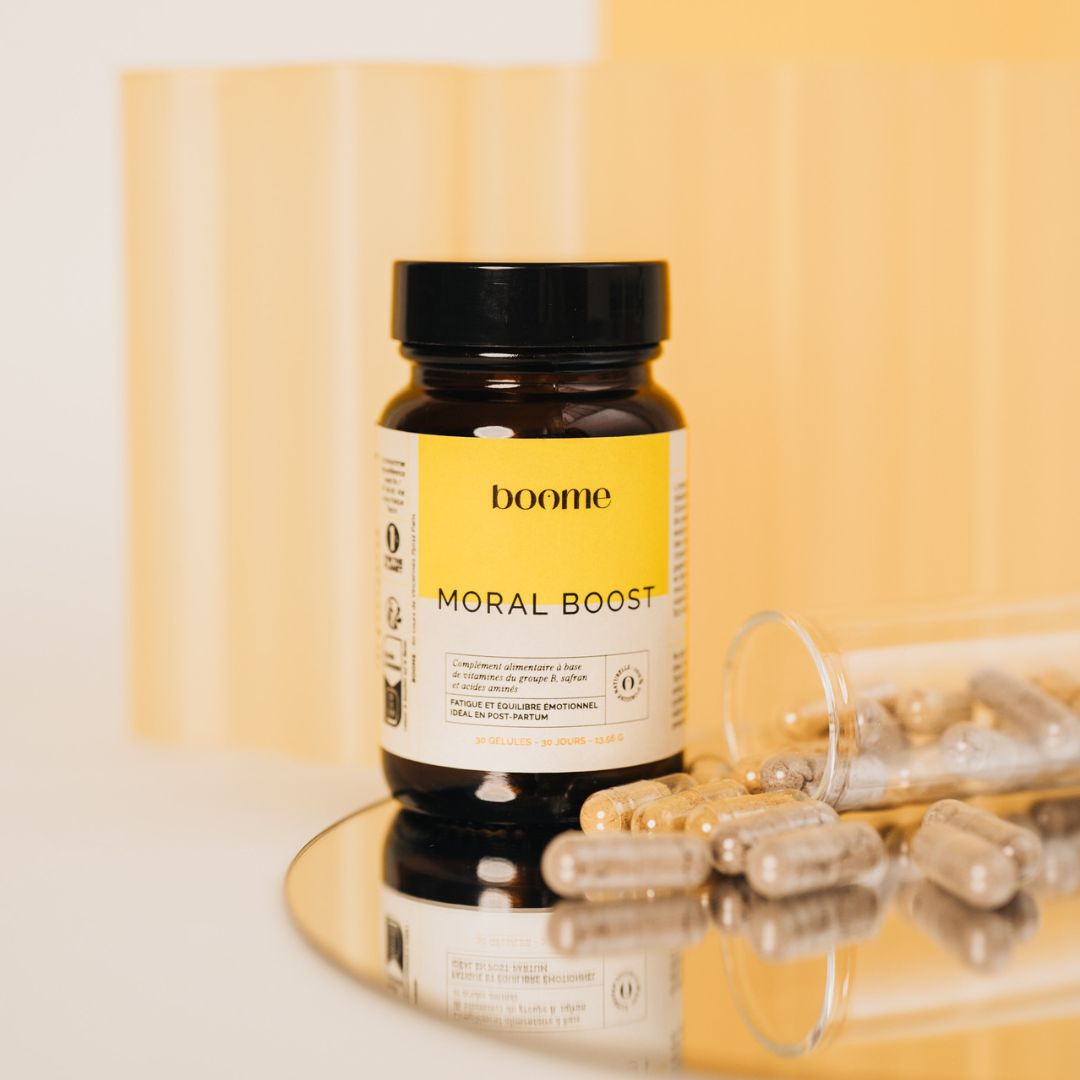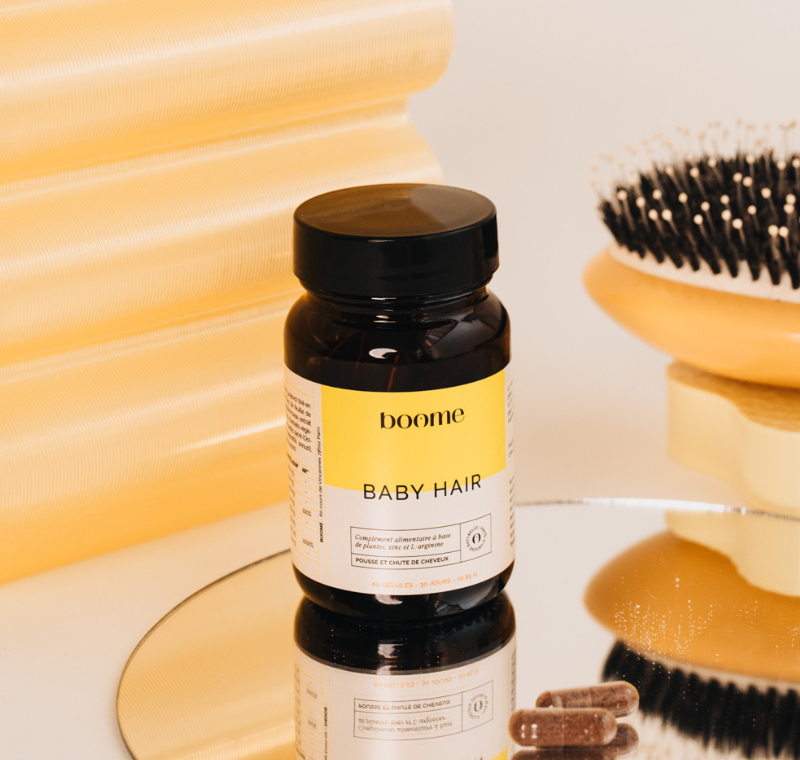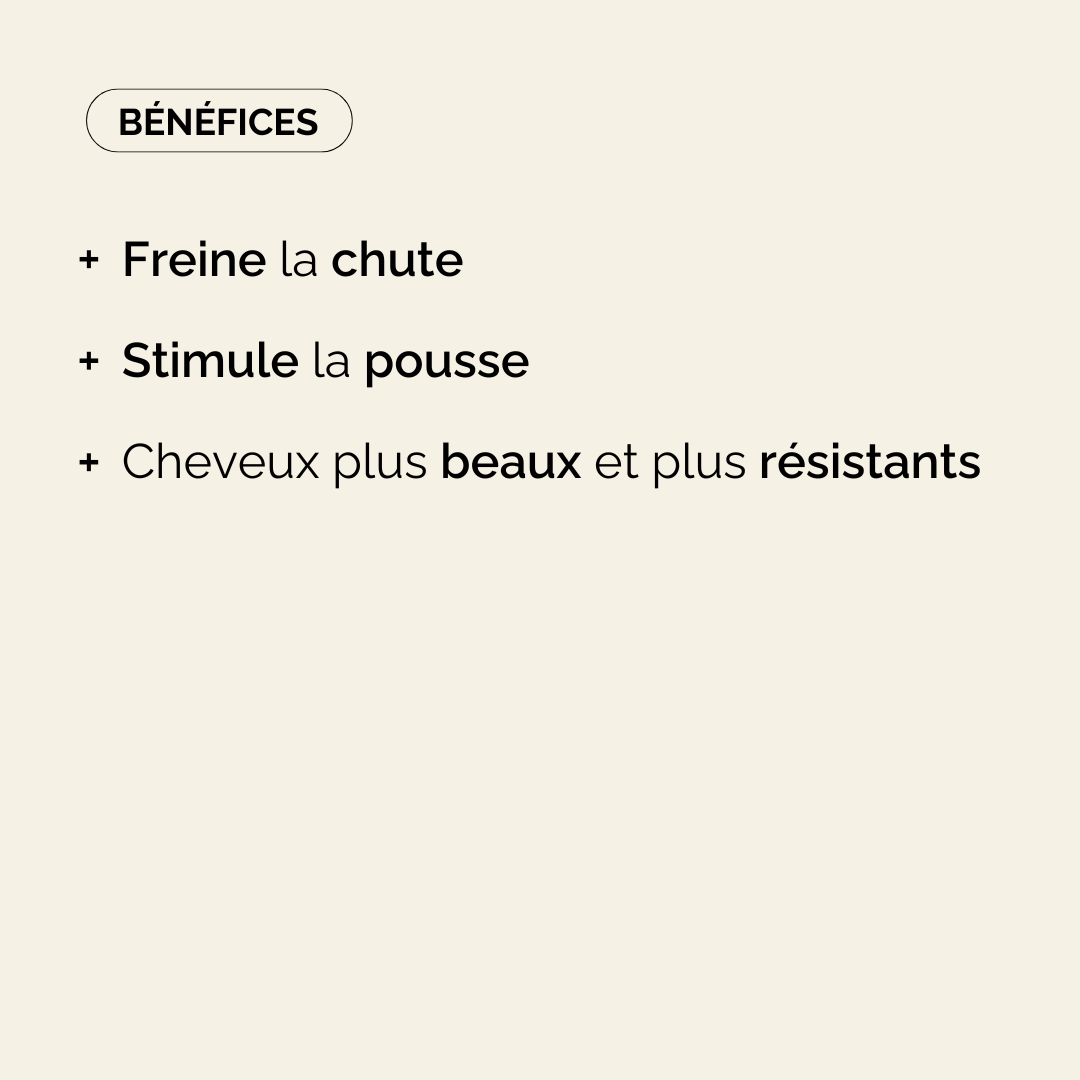
We talk a lot about childbirth, but less often about the postpartum period. Yet, it's a pivotal, often confusing time, where the body recovers while the mind oscillates between happiness and exhaustion. Broken nights, hormonal drops, new responsibilities... Every woman goes through this stage differently. So, how long does the postpartum period really last? What should you expect? And above all, how can you take care of yourself during this whirlwind of changes? We take stock of this essential, even if little-known, passage to better understand it and experience it with greater serenity. Here we go!
Postpartum: definition
The entire period following childbirth is called "postpartum." During this phase, the new mother's body and mind slowly recover from the upheavals of pregnancy and birth. It can last several months... or even several years! And to properly anticipate it, there's nothing like understanding the different stages.
How long is postpartum?
So, how long does the postpartum period last ? There are several answers to this question! But, generally, postpartum is defined in three main phases:
1. The immediate postpartum period (= the first 24 hours after delivery): this period corresponds to the delivery of the placenta and the body's first reactions to hormonal changes. The medical team remains on the lookout to monitor you, as possible postpartum complications may still arise.
2. Early postpartum (= the first 10 days after birth): during this phase, your tears and scars (from a cesarean section, for example) are gradually repairing themselves. You may feel uterine contractions (= the cramps, we'll come back to that). These allow your uterus to return to its original size. At the same time, it's time to establish breastfeeding, if it's part of your maternal project!
3. Late postpartum (= up to 6 to 8 weeks after delivery): Your body continues to recover. If you're not breastfeeding, you may experience your period. Welcome back to menstrual cycles!
That said, let's take a moment to pause. Some experts believe that the postpartum period can last well beyond the "medically recognized" six weeks. Since, hormonally and psychologically—get this—this period could last up to a year... or even longer!
What are the stages of postpartum?
We can still note three important phases during this period.
Coming home
At the end of the third trimester of pregnancy , we give birth. And once we've given birth, well... We go home! From the first few days, if everything went well, here's the first step: going home. And this can sometimes be confusing. We were in the maternity ward, with a super reassuring medical environment and doctors who took great care of us. Then, we find ourselves propelled into our daily lives, which resumes its course - but not as before. We have become (again) mothers and we have to (re)find a new balance with our baby. Not easy!
On a physical level, the body continues to recover from its emotions. You may observe:
- vaginal bleeding / vaginal discharge (the famous lochia);
- uterine contractions (the re-famous contractions);
- your milk production (sometimes impressive!);
- urinary leaks (we said we'd tell you everything, right?);
- possible pain in the perineum or your scars.
Organizationally, it can also be a bit of a challenge. Adjusting to the new arrival's pace often leads to intense fatigue for parents. For many mothers, it can even lead to the infamous baby blues ! Don't panic—this very common feeling of sadness only lasts a few days.
The return of layers
And we're not even talking about Pampers diapers! The return of menstruation is the period that corresponds to the first menstrual period after childbirth. It generally occurs between the 6th and 8th week postpartum. Especially in women who are not breastfeeding. And therefore, much later in those who are breastfeeding! Why? Because prolactin, the main hormone for breast milk production, inhibits and blocks ovulation.
Your first period may be heavier and longer than before pregnancy. You may also experience more intense cramps, just as your uterus regains a stable hormonal cycle.
Warning! New mothers tend to confuse the return of menstruation with lochia. However, they are two different phenomena. Lochia is vaginal discharge after childbirth. It is completely normal and usually lasts for several weeks.
Postpartum medical follow-up
During your postpartum period, you'll receive medical follow-up—essential for monitoring your physical and mental recovery! First, a midwife will visit you at home during the first few days. This includes:
- weigh your baby;
- support your breastfeeding;
- answer all your questions as a young mother;
- In short, check that everything is going well for both of you (and the co-parent).
Then, you can have your first postnatal visit between 6 and 8 weeks after delivery. There, your midwife will be able to assess:
- Your healing in case of stitches or cesarean section.
- The tone of your pelvic floor and your perineum.
- Possible signs of postpartum complications (hemorrhage, infection, depression).
- Your contraceptive needs, if you wish to resume sexual intercourse.
What are the symptoms of postpartum?
Postpartum is a time of great upheaval, which each of us experiences in our own way. Here, however, are some of the most common symptoms.
Physical symptoms of postpartum
Childbirth is a significant challenge for our bodies, which will need time to readjust. This transition phase is reflected in several physical symptoms, such as:
- Lochia: This postpartum bleeding can last 4 to 6 weeks and varies in intensity. It is heavier in the first few days, then gradually decreases.
- Uterine contractions : these are painful contractions that allow the uterus to return to its original size.
- Pain (perineum and scars) : After a vaginal birth, you may also experience pain in the perineum. This is very common, especially in cases of tearing or an episiotomy. If you had a cesarean section, your scar may feel a little tight for several weeks.
- Intense fatigue : Between physical recovery and nights interrupted by the baby's awakenings, exhaustion is commonplace in the postpartum period.
- Milk supply and breast pain : Breast milk production can cause breast engorgement. And with that, painful tenderness (especially at the beginning of breastfeeding).
- Digestive and urinary problems : constipation, hemorrhoids, urinary leaks or a feeling of heaviness in the pelvic floor... nothing very glamorous, but all these symptoms are very common postpartum.
Are you losing a lot of hair since giving birth? It's normal! We explain why in our article on postpartum hair loss .
Postpartum Mental Symptoms
Postpartum isn't just about physical changes. It's also a time when you feel more vulnerable psychologically. Hormonal fluctuations, adjusting to motherhood, and fatigue can all cause a variety of symptoms. For example:
- Irritability and mood swings : Your hormones are running wild. So, inevitably, you may experience heightened sensitivity. This can lead to recurring crying and a feeling of emotional exhaustion.
- Postpartum anxiety : Most women experience intense stress about their new responsibilities as mothers, particularly regarding feeding, sleep, and the health of their infant.
- Sleep disturbances : Even aside from the baby waking up at night, some women may suffer from insomnia due to stress and hormonal changes.
- Feelings of loneliness : Despite the euphoria of childbirth, many mothers experience a sense of isolation, especially if they have little family or social support.
- Lack of self-confidence : Faced with social injunctions and the pressure to “do well,” many women have serious doubts about their maternal abilities.
Baby blues and postpartum depression
Did you know that around 80% of new mothers experience a sense of sadness in the first days of their child's life? This is called the baby blues, and it's completely normal. This episode, which occurs within 3 to 10 days after delivery, manifests itself through:
- uncontrollable crying;
- fatigue;
- and hypersensitivity.
Whose fault is it? Hormones and their sudden drop after childbirth. But don't worry: the baby blues disappear spontaneously, a few days after giving birth.
On the other hand, we should not confuse baby blues with postpartum depression. Which, let's face it, affects 15% of women and can last for several months. What's the difference? Well, the latter is characterized by:
- intense sadness;
- extreme fatigue;
- a loss of interest in their baby;
- negative thoughts.
If this happens to you, don't wait and consult a healthcare professional. You'll likely need help to get through it.
Looking to pamper your body right after giving birth? Look no further: our postpartum products are here for you!
How to take care of yourself postpartum?
We tend to focus the postpartum period on the newborn. But the mother also needs attention and support to recover during this time. So here are our best tips for taking care of yourself, navigating this transition better, and avoiding burnout.
1. Surround yourself and ask for help
One of the most important factors for a peaceful postpartum period is the support of those around you. And this applies from the very first days! After giving birth, your fatigue and mental load can sometimes be overwhelming, especially if you have other young children at home. Help can come from several different people. Among them:
Your partner and/or family
If present, your partner must be involved in all daily tasks:
- take care of the baby;
- manage meals;
- to do the housework;
- be there for you.
You can also ask your loved ones (parents, friends) to take over as soon as possible, even just for a few hours a day. And so that you can take a breather, too... as soon as possible.
Your midwife and other healthcare professionals
We know that asking for help isn't always easy. Yet, that's what private midwives are here for! They—along with other healthcare professionals—are there to best support you during your postpartum period.
Support groups
Did you know that there are associations and support groups where you can connect with other parents? By talking with women who are going through the same thing as you, you'll receive the emotional support you need.
2. Enjoy breastfeeding
Breastfeeding is quite an adventure! But it's not always easy to get started. From the very first days, the production of breast milk and establishing a feeding schedule can be painful and emotionally intense.
Are you having trouble? Consult a midwife or lactation consultant. They will help you adjust your baby's position and avoid certain pains. Note that many maternity wards offer postnatal breastfeeding support, as do organizations like La Leche League, which offer valuable support.
Also, you should know that producing breast milk requires a lot of energy. So, remember to:
- hydrate yourself well;
- adopt a balanced diet;
- rest as soon as possible.
Are you breastfeeding at night? Consider nighttime co-feeding! Your baby sleeps nearby, making nighttime feedings easier and reducing fatigue. Convenient!
Finally, know that breastfeeding isn't mandatory. And every mother should be able to make her own choice without guilt. If breastfeeding becomes a source of stress or suffering for you, then don't hesitate to turn to the bottle. Your well-being as a mother comes first.
3. Resume physical activity
Even though postpartum is a recovery period, there's nothing stopping you from engaging in appropriate physical activity. On the contrary, it's a great idea to regain energy and boost your mental well-being! We recommend waiting at least 6 weeks after giving birth before getting back into it (and 8 weeks if you had a cesarean section). It's best if this return to exercise is approved by your midwife or physiotherapist.
Where to start? Start with gentle activities that will help you reconnect with your body, such as:
- walking;
- postnatal yoga;
- abdominal breathing exercises.
Once you have completed your pelvic floor rehabilitation, you can reintroduce more intense exercises such as:
- Pilates;
- swimming;
-
light muscle strengthening.
In any case, resuming sport postpartum will help you:
- Promote recovery by stimulating your blood circulation and improving your posture.
- Better manage stress and anxiety by releasing endorphins.
- Strengthen your abdominal muscles and back, which are often put under strain during pregnancy.
On the other hand, be cool with yourself: listen to your body and don't set overly ambitious goals. Keep in mind that every woman recovers at her own pace!
4. Re-educate your perineum
Too often neglected, perineal rehabilitation is essential after childbirth to prevent:
- urinary leaks;
- the feeling of heaviness;
- some pain.
If your perineum is too fragile, you risk unpleasant prolapse or discomfort in everyday life – as soon as you carry heavy loads, for example.
In France, you're entitled to 10 rehabilitation sessions starting 6 to 8 weeks postpartum. With a midwife or physiotherapist, you'll practice various muscle contraction exercises that are excellent for your pelvic floor. You'll then have the opportunity to work your deep abdominal muscles to complete your recovery.
5. Resume sexual activity
Finally, you can resume sexual intercourse after giving birth. But this should be done without pressure and at your own pace. You may be advised to wait until lochia has passed and your pregnancy has fully healed before resuming. But, once again, the decision is yours alone.
Be aware, however, that certain difficulties may arise, such as:
- vaginal dryness;
- fatigue;
- of apprehension.
This is why, in all cases, it is important to maintain communication within the couple.
If you resume intercourse after your period, remember that you're fertile again! So, consider contraception. Who wants to take charge? You or your partner? What type of postpartum contraception will work best for you? There's no shortage of options:
- IUD;
- implant;
- condom;
- contraceptive pills…
If you're unsure, talk to a healthcare professional. They'll help you choose the most appropriate method. The key, again, is to listen to your body. And don't rush into anything!
In short, you'll have understood: postpartum is a significant period of transition. During which it is essential to take care of yourself, surround yourself with the right people, and listen to your body to get through it as best as possible. So, above all, don't hesitate to ask for help. Because a healthy mother is a baby growing up in a peaceful environment.









